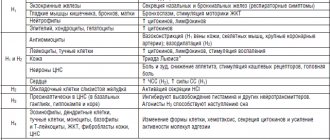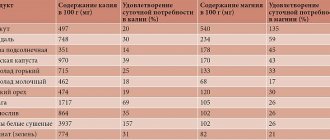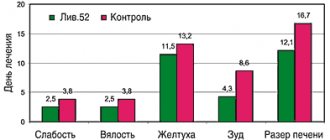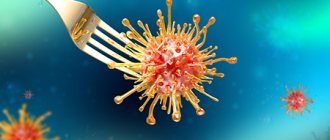Choleretic drugs are often perceived by consumers as light health-improving drugs. But in fact, things are much more complicated - such drugs seriously affect the functioning of the gastrointestinal tract and experimenting with them may be unsafe for health. That is why it is important for the pharmacy worker at the first table to have a clear understanding of how choleretic drugs work and to be able to convey information to the consumer in a simple and understandable form. Let's look at everything in order - from physiological basics to specific questions that should be asked to a pharmacy visitor during a consultation.
Types of choleretic drugs
Medicines that increase the flow of bile are divided into 2 groups according to their mechanism of action - choleretics and cholekinetics.
Classification:
1. Choleretics. They increase the volume of bile secreted and the concentration of acids.
- True choleretics - Allohol, Liobil. The products contain liver enzymes, animal bile, and extracts from medicinal herbs.
- synthetic choleretics - Nicodin, Cyclalon. They have a choleretic effect, relieve inflammation, eliminate spasms, and fight pathogenic bacteria;
- choleretics of plant origin - Cholagol, Chofitol. Contains extracts from herbs and plants. Helps improve bile movement, reduce secretion viscosity, improve liver function;
- natural bile acids, often of animal origin – Cholenzyme. Active substances – crushed mucous membrane of the small intestine, pancreas, animal bile.
- Hydrocholeretics. Mineral medicinal waters – Essentuki, Smirnovskaya, Slavyanskaya. Salts improve the production of bile and dilute it.
- 2. Cholekinetics – promotes the passage of bile into the intestines.
- Cholekinetic agents. Atropine, Magnesia. They relax the bile ducts by stimulating the contractile functions of the gallbladder, eliminate congestion, and prevent their occurrence.
- Cholespasmolytics. Relaxes smooth muscles, eliminates pain.
- Synthetic – Drotaverine, Papaverine;
- Natural – St. John's wort tincture.
Preparations to prevent the formation of gallstones with ursodeoxycholic acid - Ursosan.
The classification of drugs that have a choleretic effect is conditional; many drugs have a complex effect.
About hydrocholeretics
Some table medicinal mineral waters are called hydrocholeretics. They simply reduce the thickness and viscosity of bile, and make it more fluid. Unlike ordinary water, when mineral water is absorbed in the intestinal lumen and penetrates into the portal bloodstream, it is absorbed by liver cells first and increases the pressure in the bile ducts by osmosis.
Essentuki-17, Essentuki-4, Naftusya, Slavyanovskaya and Smirnovskaya mineral water work great. In addition to increasing pressure in the bile ducts, the reabsorption of water and electrolytes in the gallbladder and biliary tract is also significantly reduced, which also reduces the potential for lithogenicity, or the possibility of gallstone formation.
Also, the effect of mineral water on the bile ducts depends on the so-called sulfate anion, or sulfuric acid residue, SO4, which is usually combined with sodium and magnesium cations. These sulfuric acid salts - magnesium and sodium sulfate - have a pronounced choleretic effect. Many metal cations do useful work. Thus, calcium (Ca2+) forms a complex compound with bile acids, which significantly reduces the likelihood of poorly soluble bile sediment, which contributes to the subsequent formation of stones. Such mineral salts make bile more fluid, and in its colloidal state it becomes more stable. Mineral waters should be consumed 30 minutes before meals, preferably warm and with gas released, if any.
Indications for the use of drugs for the secretion of bile
General indications for taking medications with a choleretic effect:
- cholecystitis;
- cholangitis;
- hepatitis B, C, D, pathological processes in the bile ducts of a chronic course;
- cholestasis;
- biliary dyskinesia;
- inflection of the gallbladder;
- prolonged, frequent problems with bowel movements;
- after removal of the gallbladder in order to prevent the development of gallstone disease.
The need to take choleretic medications is indicated by a bitter taste, a coating on the tongue, pain, a feeling of heaviness under the right ribs, and belching. All these signs may indicate disturbances in the functioning of the biliary system and liver.
Important! General contraindications for taking medications for bile stagnation are hepatitis in the acute stage, cirrhosis, acute and subacute dystrophic liver pathologies, obstructive jaundice, erosions of the gastrointestinal tract, pancreatitis, diarrhea.
Why is bile needed?
TANACECHOL® tablets
herbal choleretic drug
It is used as a choleretic and antispasmodic agent for:
- chronic noncalculous cholecystitis
- hypomotor type biliary dyskinesia
- postcholecystectomy syndrome
ADVANTAGES:
- choleretic effect combined with antispasmodic effect
- affordable price
There are contraindications. Specialist consultation required
Bile is produced in the liver by hepatocytes, then accumulates in the gallbladder and is excreted through the common bile duct into the duodenum along with pancreatic secretions. That is, the gallbladder acts as a reservoir and transfers bile to the duodenum.
The chemical composition of bile is represented mainly by bile acids. The composition of bile “in numbers” looks like this:
- bile acids - 35.0 mmol/l;
- bile pigments - 0.8–1.0 mmol/l;
- cholesterol ~ 3.0 mmol/l;
- phospholipids - 1.0 mmol/l.
About 22% of bile is phospholipids. In addition, bile contains proteins (immunoglobulins A and M) - 4.5%, cholesterol - 4%, bilirubin - 0.3%, mucus, organic anions (glutathione and plant steroids), metals (copper, zinc, lead, indium, magnesium, mercury, etc.), as well as lipophilic xenobiotics [1].
The synthesis of these substances occurs during the breakdown of cholesterol and its removal from the human body.
Bile performs two important functions in the body:
- removal from the body of lipophilic components that cannot be excreted by the kidneys in the urine;
- secretion of bile acids, which are involved in the digestion of dietary fat and the absorption of its hydrolysis products.
In addition, bile acids found in bile improve intestinal motility, which naturally prevents constipation. Bile acids also have antiseptic properties and reduce the risk of intestinal infections [2]. Thanks to bile, toxins are removed from the body. In general, any failure in bile transit can cause a lot of trouble. Most often this is:
- nausea;
- pain after eating;
- repeated moderate pain localized in the epigastrium;
- vomit.
What should a pharmacist know?
First of all, which choleretic drugs have a stimulating mechanism of action, which have a contractile mechanism. Depending on the leading mechanism of action, choleretic agents are divided into:
- Choleretics - drugs that enhance bile production;
- cholekinetics - stimulating the flow of bile from the gallbladder into the intestines.
Review of the best choleretic drugs
The list of good choleretic drugs is extensive. These medications quickly cope with the manifestations of diseases, have few restrictions on use and side effects. Before starting therapy, read the instructions and follow the recommended dosages.
Allohol
A medicine with choleretic and cholekinetic properties. Ingredients: extract of bile, garlic, nettle, activated carbon. The tablets enhance the process of bile formation and activate the motor and secretory functions of the gastrointestinal tract.
Additionally, Allochol has a mild laxative effect and improves the process of breaking down fatty foods.
When to take Allohol:
- chronic hepatitis;
- inflammatory processes in the gallbladder, bile ducts;
- constipation caused by intestinal atony;
- with the gallbladder removed for normal bile movement.
Dosage for adults – 2 tablets with an interval of 8 hours after meals, with an exacerbation, 1. Duration of treatment – 3-6 weeks. The break between courses is 3 months. Improvement in the condition occurs on days 5-8 of taking the medicine - pain decreases, dyspeptic disorders disappear.
Children under 7 years of age are prescribed 1 tablet in the morning, afternoon and evening. For children over 7 years old – adult dosages.
During treatment, adverse reactions rarely occur. Mostly allergic manifestations and stool disorders are observed.
Contraindications – acute form of hepatitis and pancreatitis, liver dystrophy, stones in the gall bladder or ducts, peptic ulcer of the gastrointestinal tract.
Price – 70-115 rub.
Hofitol
Plant choleretic with field artichoke leaf extract. Release form: tablets, suspension, syrup for oral administration.
A drug with hepatoprotective, choleretic effect, normalizes metabolic processes. The medicine activates the process of formation and movement of bile, prevents the development of atherosclerosis.
Indications:
- nausea, bloating, discomfort in the central abdominal area;
- chronic non-calculous cholecystitis, hepatitis;
- slowing down the outflow of liver secretions with biliary dyskinesia;
- cirrhosis;
- renal failure, chronic form of nephritis.
Hofitol is prescribed as an auxiliary drug for intoxication with salts of heavy metals or alkaloids, obesity, anorexia, atherosclerosis, and urolithiasis.
Directions for use: drink three times a day before meals. Dosages – adults and children over 12 years old – 2-3 tablets. Course – 2-3 weeks. Dosage regimen for children 6-12 years old – 1-2 tablets.
Single dosages of medication in liquid form for children:
- Up to a year. Dilute 5-10 drops of the drug in 5 ml of water.
- 1-5 years. 10-20 drops, dissolve in 15 ml of water.
- Over 6 years old. Dissolve 2-3 ml or 40-60 drops in 15 minutes of water.
The container with the suspension must be thoroughly shaken before use; the artichoke extract will settle to the bottom.
Side effects occur with long-term use of the drug in high dosages. Possible negative reactions are abdominal cramps, heartburn, upset stool, nausea. Rarely, hypersensitivity reactions occur - rash, itching, skin hyperemia.
The drug is not prescribed for individual intolerance, bile duct obstruction, cholelithiasis, or diseases of the urinary system in the acute stage. Hofitol tablets are contraindicated in children under 6 years of age.
Price – 470-580 rub.
Holosas
An effective natural remedy containing rosehip extract. It has a complex effect - improves the flow of bile, promotes the restoration of liver cells, eliminates manifestations of the inflammatory process, strengthens the immune system. Holosas reduces the permeability of small blood vessels, accelerates the regeneration process and the synthesis of hormones, and is involved in the metabolism of carbohydrates.
Indications for use:
- viral hepatitis;
- cholecystitis, cholangitis;
- deficiency of vitamin C, P;
- poisoning with drugs, alcoholic beverages;
- increased physical and mental stress.
Dosage for children over 12 years of age and adults – 5 ml 2-3 times a day half an hour before meals. The average duration of therapy is 15-30 days.
The medicine should not be taken if there is intolerance to the components, cholelithiasis, and should be taken with caution if you have diabetes. The syrup is contraindicated for children under 12 years of age, pregnant and lactating women. Possible side effects are allergic manifestations, stool upset, bloating, flatulence.
Average price – 100-200 rubles.
Holenzym
Combined choleretic action tablets from the group of natural bile acids.
Practiced with:
- gastrointestinal pathologies;
- chronic hepatitis, cholecystitis, pancreatitis;
- gastritis;
- colitis;
- bloating;
- diarrhea of non-infectious origin.
Dosage: 1 tablet after meals at intervals of 8-24 hours.
Possible adverse reactions are caused by allergic manifestations:
- sneezing;
- lacrimation;
- redness and swelling of the skin;
- rashes.
It is strictly forbidden to take when:
- acute pancreatitis or exacerbation of the chronic form of the disease;
- obstructive jaundice;
- hypersensitivity to components.
The price of tablets No. 50 is 250-300 rubles.
Papaverine
Synthetic antispasmodic, active ingredient – papaverine hydrochloride. The drug has a relaxing effect on smooth muscles.
Papaverine will help cope with spasms and pain due to cholecystitis and spastic colitis. The medicine is prescribed before surgical interventions on the gallbladder.
Tablet dosage regimen:
- children from 1 year to 12 years – maximum single dose 200-300 mcg/kg;
- adults - 0.04-0.06 g orally, dosage frequency 3-5 times a day.
Possible side effects are tachycardia, decreased blood pressure, dyspeptic disorders, drowsiness.
Contraindications:
- individual intolerance;
- violation of intracardiac conduction;
- glaucoma;
- severe forms of renal failure;
- less than 6 months old.
The medicine is prescribed with caution for chronic renal failure, shock, hypothyroidism, and malfunction of the adrenal glands.
Price – 35-90 rub.
Odeston
A synthetic choleretic agent, the main ingredient is hymecromone. A complex action medicine – improves the synthesis and movement of bile, relaxes the bile ducts, analgesic, antispasmodic.
Odeston's indications:
- chronic form of non-calculous cholecystitis, cholangitis, cholelithiasis;
- impaired motility of the biliary tract, sphincter of Oddi;
- after surgical interventions on the organs of the biliary system;
- lack of appetite, problems with defecation, vomiting caused by bile hyposecretion.
Take the medicine 30 minutes before meals. Dosage regimen for adults – 1-2 tablets every 8 hours. Duration of therapy is 14-21 days.
The recommended dosage for children over 7 years old is 1 tablet 1-3 times a day. The treatment course is 2-3 weeks.
The medicine sometimes provokes the development of allergies, dyspeptic disorders, ulcers of the mucous organs of the gastrointestinal tract, migraine attacks and dizziness.
Odeston should not be taken if you have kidney or liver failure, blockage of the bile ducts, ulcerative colitis, Crohn's disease, or hemophilia. The drug is not prescribed to children under 7 years of age.
Price – 430-880 rub.
Flamin
Herbal preparation with extract of immortelle flowers. Cholekinetic, choleretic, anti-inflammatory, antimicrobial, antispasmodic.
Tablets or granules help with inflammation of the gallbladder, ducts, and liver.
Take the medicine before meals. Dosage for tablets – 1-3 times a day. Duration of treatment is 1.5-6 weeks.
Children are prescribed the drug in granules, from which a suspension is prepared.
Single dosage for children:
- 1-12 months – 2.5 ml;
- 1-3 years – 5 ml;
- 4-5 years – 7.5 ml;
- over 5 years – 10 ml.
Course duration is 10-14 days.
Allergic reactions may occur during treatment. With hypertension, blood pressure may increase.
The medicine should not be taken if you have hypersensitivity, cholelithiasis, or obstructive jaundice.
Price – 170-300 rubles.
Magnesia
Magnesium sulfate, when taken orally, has a choleretic, laxative, and antispasmodic effect.
The medicine will help with cholangitis, cholecystitis, constipation, and gallbladder dyskinesia. The drug is effective before duodenal intubation to obtain a cystic portion of bile.
As a choleretic agent, dissolve 20-25 g of powder in 100 ml of water. Drink 15 ml solution 3 times a day before meals.
Contraindications:
- hypertension;
- bradycardia, AV block;
- severe forms of chronic renal failure;
- depression of the respiratory center.
The price of 1 sachet is 20-28 rubles.
Ursosan
{banner_banstat9}
The drug contains ursodeoxycholic acid. Hepatoprotector with choleretic, immunomodulatory effects.
Indications:
- uncomplicated forms of cholelithiasis;
- prevention of stone formation when the gallbladder is removed;
- biliary dyskinesia;
- acute, chronic active hepatitis, primary biliary cirrhosis.
The Ursosan treatment regimen is selected individually, depending on the type and severity of the disease. The standard dosage is 2-5 capsules per day. The duration of therapy ranges from 2-3 months to several years.
Contraindications:
- chronic hepatitis, pancreatitis;
- disabled gallbladder;
- acute form of cholecystitis, cholangitis;
- decompensated cirrhosis of the liver;
- acute infectious pathologies of the gallbladder;
- renal, liver failure;
- pregnancy, breastfeeding period.
Possible adverse reactions are vomiting, diarrhea, exacerbation of psoriasis, back pain, allergies, alopecia.
Price for 10 capsules – 180-190 rubles.
General contraindications to the use of choleretic drugs
Those contraindications for which choleretic drugs cannot be prescribed immediately become clear. Choleretics should not be prescribed for acute inflammatory processes in the liver, hepatitis, both alcoholic and autoimmune and viral. This is an inflammatory process in the area of the gallbladder and bile ducts: cholecystitis and cholangitis, and not chronic, but acute processes. Unlike hepatitis, this may not be a therapeutic, but a surgical pathology.
Choleretics are not prescribed for pancreatitis, exacerbation of gastric and duodenal ulcers, erosive-ulcerative gastritis. Choleretics are prohibited in case of cholelithiasis. If the excretory ducts of the liver are blocked, and against this background the formation of bile is stimulated, the condition will worsen significantly. Contraindications include obstructive or obstructive jaundice, as well as degeneration of the liver parenchyma, for example, cirrhosis, when the formation of bile is difficult due to the defective functioning of hepatocytes.
Cholekinetics have a similar list of contraindications. Naturally, these are also acute diseases of the liver and biliary tract, cholelithiasis, exacerbation of gastritis with high acidity, as well as gastric ulcer. In other words, choleretic drugs should always be prescribed by a doctor, taking into account indications and contraindications.









